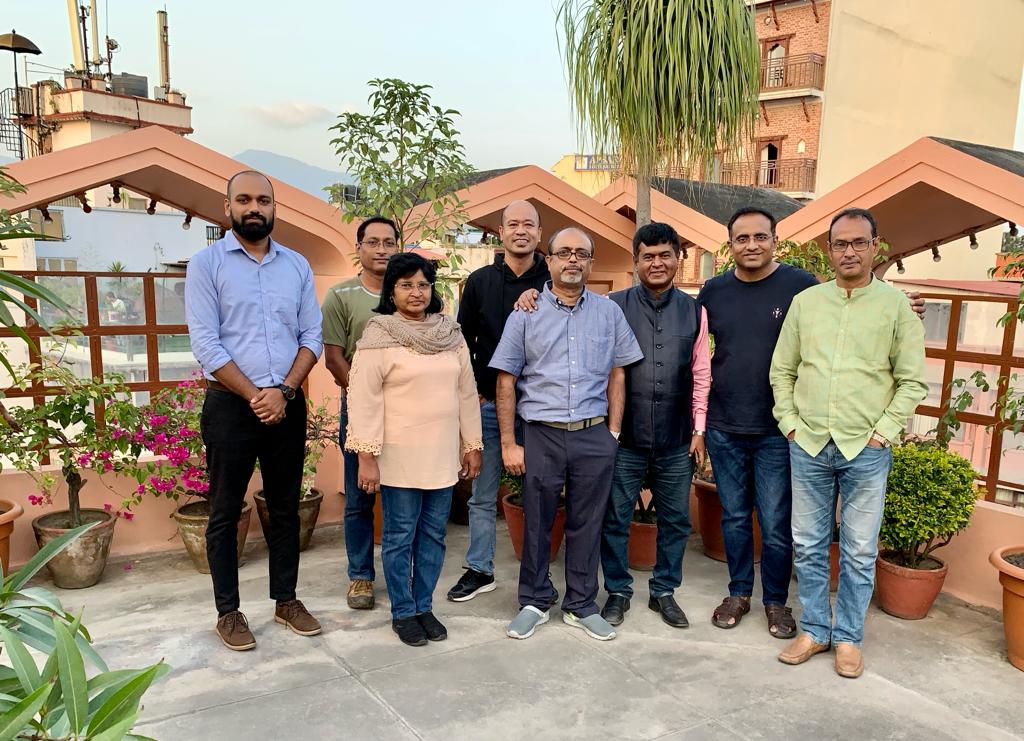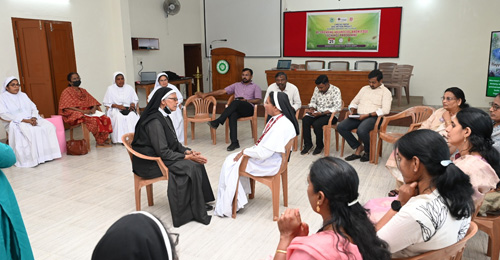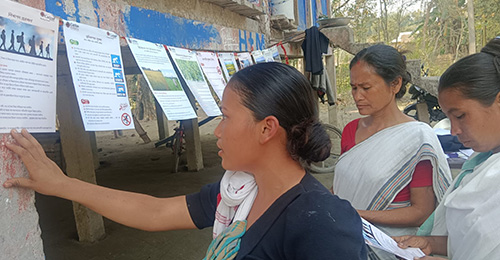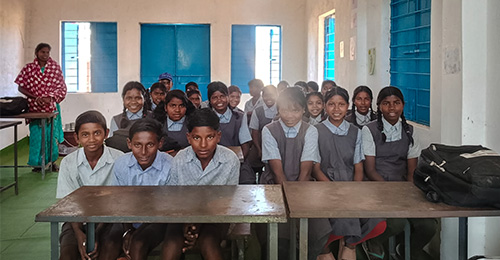SAFBIN considers regenerative agriculture, disaster risk reduction and carbon farming for the next phase

Smallholder Adaptive Farming and Biodiversity Network (SAFBIN) members consider regenerative agriculture systems, disaster risk reduction measures and carbon farming as the key areas for the next phase of the programme.
A proposal development workshop was held in Kathmandu, Nepal from October 17 – 21, 2022 to develop the next phase of SAFBIN considering the learnings and final evaluation findings. The key focus revolved around small farm resilience by strengthening smallholder’s capacity in terms of diversifying the small farm components to make the small farm more resilient to climate stress, disaster, and pandemic.

SAFBIN Caritas member organisations, Caritas India, Caritas Nepal, Caritas Bangladesh, and Caritas Sri Lanka captured the key lesson learned from the last phase and the evaluation findings and developed an innovative framework around a sustainable local food system with low carbon farming and resilient farming system approach.
The team also considered the global call and the last UNFCC COP 26 recommendation of the regenerative agriculture system, disaster risk reduction measures and carbon farming (sequestration) to take it forward for the next phase.
All the participants of the workshop worked extensively and decided to work on local food security, improved resilience, increased income in recognition of ecosystem services, and reduction of climate-induced displacement considering disaster as a key driver of displacement. The proposal development workshop focused on two major thematic areas that encompassed the priority topics of climate change and associated socio-economic impacts and environmental problems considering disaster, disaster risk reduction measures and climate induces displacements.
It is vital that developing countries in the Asia region have the capacity to conduct high-quality local, national, and regional research that provides underpinning scientific support for policymakers and policy-making processes.
The SAFBIN team believes that research must involve local scientists keeping smallholders at the front to continue on-farm action research and analyse and utilise the research outcomes. With this aim, the Proposal Development Workshop was conducted in Kathmandu.
The workshop fulfilled its objective of strengthening systems and capacities at the Caritas level to develop inter-thematic support for coordinating and implementing climate change response, contributing to a greener, low-carbon, climate-resilient, equitable, sustainable, sustainable, and knowledge-based society.
Upcoming News
Strengthening grassroots recovery in Wayanad through Safe Within Project
Caritas India strengthened community centred disaster recovery through a four day accompaniment support visit to...
LEARN MOREFlood‑prone communities in Assam and Tripura are better prepared through We4Resilience
The We4Resilience Campaign under Caritas India’s SARAL (Strengthening Adaptation, Resilience and Livelihoods) project, supported by...
LEARN MOREChildren Lead the Fight for Safe Education
In Remhla, a small forest-surrounded village in the Sarguja district of Chhattisgarh, the middle school...
LEARN MORE



 91 -11 - 2336 3390
91 -11 - 2336 3390  director@caritasindia.org
director@caritasindia.org 